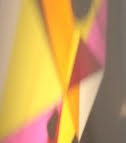leave your brains at home and carry a capacity for feeling with you...

"why did you wish to add yet another to the number of films made about joan of arc?
to make her real and immediate...
you never show joan in the same shot as her accusers, why?
first, i couldn't do it. the natural decor made it impossible to show them together. but i believe that it is good to create obstacles. for my part, i don't work well without obstacles... there is only one way of shooting people: from near and in front of them, when you want to know what is happening inside...
what do you expect the audience to bring to your film?
not their brains, but their capacity for feeling...
do you expect them to know the facts of the trial? is that why you don't explain who the participants are?
i never explain anything, as it is done in the theatre...
at the beginning of the film we're shown the back of joan's mother, with a hand on each of her shoulders. why do you just show her back?
because i want her to be a character. besides, it's not in the film itself. it appears before the title...
at one point in the trial, the judges make joan kneel. then you dissolve away to her standing again afterwards.
the moment of cutting has the same function as that of movement in other films. shakespeare also cuts at strange times. his cutting is like a door through which the poetry enters...
there are many shots of doors, open doors. do these relate to joans speech "if i see a door open", etc.?
when one is in prison, the most important thing is the door.
why are there a large number of shots of the english peering at joan through the crack in the cell wall?
there are not as many as you say - as few as possible...
why do you treat the burning partly as a subjective shot of the cross being obscurred by smoke?
i think you want me too much to explain what i did..."
excerpts from an interview with robert bresson by ian cameron regarding bresson's film "the trial of joan of arc". the interview was supposed to run on radio, but because it was done in english (at bresson's request), and thus 'rehearsed' (at bresson's request), "it was considered unsuitable for broadcasting as it now lacked even the appearance of spontaneity. it sounded not so much like an interview as a bressonian dialogue." from the book the films of robert bresson, praeger, 1969. image: soundtrack LP from the film.
Labels: a capacity for feeling, doors, joan of arc, robert bresson

0 Comments:
Post a Comment
<< Home